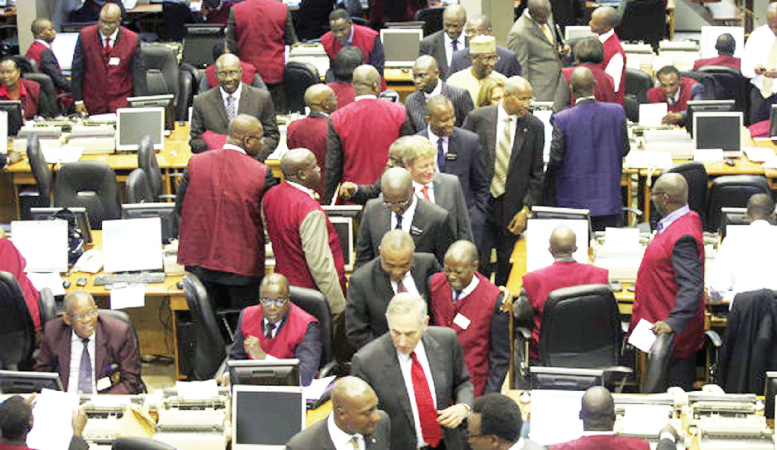- SEC Proposes New Rule on Derivatives Trading
The Securities and Exchange Commission has proposed changes and new rules regarding derivatives trading and registration requirements for commodity brokers.
SEC said the rules would be applicable to Exchange Traded Derivatives and OTC Derivatives.
It said for registration, its approval should be sought and obtained prior to the introduction of any contract, adding that any application for registration of a contract must be filed with the commission by or on behalf of an exchange with the SEC form and an information memorandum.
The statement read in part, “No participant or any capital market operator shall trade in ETD without the prior registration by the commission. Funds shall only invest in derivatives if it is expressly stated in their Trust Deeds. Where an underlying security is suspended from trading or delisted, contracts on such underlying shall cease to trade.
“ETD can only be traded on exchanges recognised by the commission. No persons shall trade on ETD either for proprietary accounts or on behalf of clients except entities registered as derivatives trading members and/or derivatives clearing members.
“The Exchange shall have the responsibility for market surveillance to ensure derivatives prices reflect demand and supply and that all forms of market manipulations are prevented. Participants and registered capital market operators shall disclose their outstanding derivative exposures to the commission on a periodic basis as may be determined by the commission.”
SEC said a derivatives clearing member would be in default if it failed to fulfil any of its contractual obligations.
It said where a DCM was unable to meet its obligation, the Exchange and/or the central counterparty would take appropriate steps to close out, auction or liquidate the proprietary positions of the DCM.
The commission said it would charge fees for registration of contracts and issue guidelines on fees for trading and clearing of contracts in the secondary markets.
According to the statement, violation of any provision of the rules and regulations will be liable to a penalty of not less than N1m and a further sum of not more than N25,000 for every day of default.
On the amendment to registration requirements for commodity brokers, SEC said the filing, processing and registration fees payable were deliberately reduced to attract participants.
It said the evidence of payment of filing/application fee, processing fee, registration fee and sponsored individual fee would be N10,000, N20,000, N50,000 and N10,000, respectively.
The commission added that the evidence of required minimum paid-up capital would now be N3m for commodity brokers and commodity dealers, while that of a commodity broker/dealer would be N10m.
According to SEC, the justification for the minimum capital is that commodity brokers are expected to play in the spot market and as such, do not require much capital.
It stated that “the nature of the market is such that it does not require professionals with huge capital base.”
“All comments and input should be forwarded to the Secretariat, Rules Committee of the commission or through the acting Director-General, SEC, not later than two weeks from the date of this amendment,” the statement added.


 Naira3 weeks ago
Naira3 weeks ago
 News4 weeks ago
News4 weeks ago
 Naira4 weeks ago
Naira4 weeks ago
 Naira3 weeks ago
Naira3 weeks ago
 Travel3 weeks ago
Travel3 weeks ago
 Jobs4 weeks ago
Jobs4 weeks ago
 Naira3 weeks ago
Naira3 weeks ago
 Investment4 weeks ago
Investment4 weeks ago





























